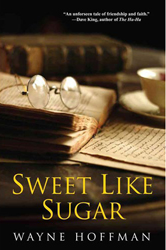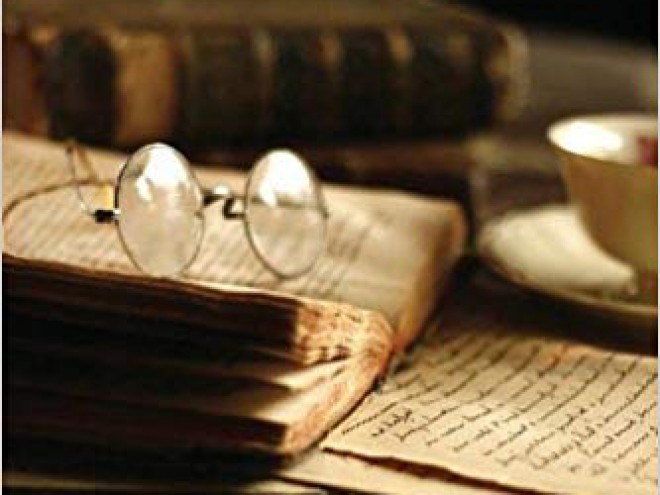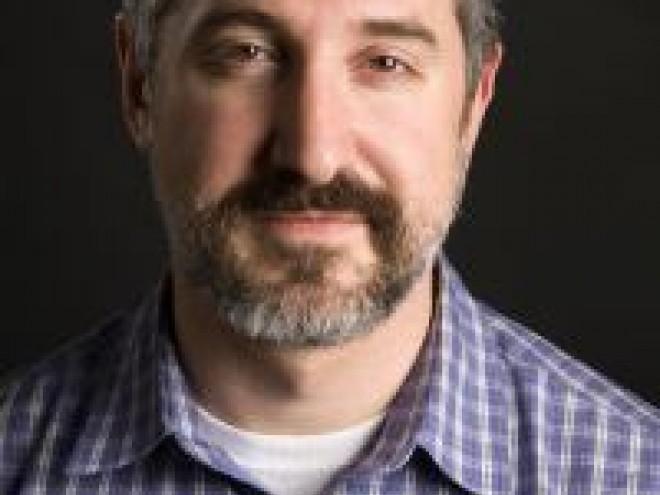Earlier this week, Wayne Hoffman wrote about a funny thing, the meaning behind the names of a few of his characters, and a gay Jewish reading list.
 There’s a scene in my novel Sweet Like Sugar where Benji, the main character, finds himself alone in an Orthodox rabbi’s house. The first thing he does is check out the bookshelves that line every wall: religious commentary in the study, nonfiction (in English and Hebrew and occasionally Yiddish) covering everything from ancient Jewish history to the Holocaust in the living room, coffee table books about Israeli art and archaeology in the dining room, kosher cookbooks in the kitchen, even a shelf of poetry in the bedroom. Benji notes the differences between the rabbi’s collection and that of his Conservative parents, which has less scripture but more fiction (Roth, Malamud, Sholom Aleichem), as well as a smattering of non-Jewish books: Civil War histories, Tom Clancy novels, biographies of Bill Clinton and Martin Luther King, Jr. “Two Jewish households,” Benji muses to himself.
There’s a scene in my novel Sweet Like Sugar where Benji, the main character, finds himself alone in an Orthodox rabbi’s house. The first thing he does is check out the bookshelves that line every wall: religious commentary in the study, nonfiction (in English and Hebrew and occasionally Yiddish) covering everything from ancient Jewish history to the Holocaust in the living room, coffee table books about Israeli art and archaeology in the dining room, kosher cookbooks in the kitchen, even a shelf of poetry in the bedroom. Benji notes the differences between the rabbi’s collection and that of his Conservative parents, which has less scripture but more fiction (Roth, Malamud, Sholom Aleichem), as well as a smattering of non-Jewish books: Civil War histories, Tom Clancy novels, biographies of Bill Clinton and Martin Luther King, Jr. “Two Jewish households,” Benji muses to himself.
Benji can tell a lot about people by the books they keep. Everyone can. But for how much longer?
We all know about the rise of digital books, whether they’re on your Kindle or your Nook or your iPad. Print editions, meanwhile, are on the decline.
E‑books have obvious virtues: they’re cheaper, friendlier to the environment, and take up less shelf space than traditional books. Paper-preferring holdouts fret about who loses in this digital revolution: bookstores with no products to sell, publishers with declining revenue despite healthy sales, authors whose royalties evaporate, readers who miss the physical pleasures of holding a real book – cracking the spine and dog-earing the pages.
But regardless of whether e‑books are good or bad for literature, they offer a bleak future for people like Benji (or me), who see books — what people read, what they keep, what they display — as a window into their owners’ psyches. Writers and readers may adjust to digital formats, but we snoops will definitely suffer.
Some people peek into medicine chests when visiting a house for the first time, but I linger around the bookshelves to see what books reveal about their owners. One might have a disconcerting penchant for self-help books or Family Circus cartoon collections, while another has leather-bound volumes that, in their unopened state, seem obviously intended only to impress onlookers. Some hold on to college textbooks, while others check out mystery novels from libraries. One might pile paperbacks haphazardly on a nightstand while another alphabetizes books on well-ordered shelves. (Some people don’t have any books in their houses; they are the oddest of all.)
On a visit to Prague several years ago, I met a local man and struck up an acquaintance. We shared a few afternoons and a couple of meals, talking about art and politics and pop culture. We seemed in synch. When he asked if we could stop by his apartment on the city’s outskirts before dinner one night, I immediately accepted. I nodded along for the basic tour – the kitchen filled with slightly unfamiliar appliances, the sleekly European bathroom – but as soon as he excused himself to get us a drink, I headed straight for his bookshelves. Philip Roth, Salman Rushdie, Hanif Kureishi, Michael Cunningham, and biographies of everyone from Madonna to Sigmund Freud. Cultural criticism, history, philosophy, geopolitics. In English — which, I discovered, was just one of about a half dozen languages he spoke. There were books in Spanish and French, Czech and his native Romanian, works by authors I had on my own shelves in Greenwich Village alongside those by people whose names I could neither recognize nor pronounce properly.
I’d already had a good feeling about my new acquaintance – good enough to visit his home. But it wasn’t until I saw his books that I really understood him, and felt certain I wanted to know him better. His books indicated to me a shared sensibility: curiosity, humor, skepticism, thoughtfulness. Sure enough, we have remained close friends for years despite being an ocean apart.
I have dozens of similar experiences, and I’m sure I’m not alone. Book snoops have taken stock of many unsuspecting people’s shelves, scanning titles, checking for dust, building personality profiles based on what we find. The joy of book-snooping isn’t even limited to potential friends or paramours; you can get to know a stranger just as easily.
The place I rented three summers ago on Cape Cod lacked air conditioning or a bathroom door that closed properly. Delivery trucks and a faulty smoke alarm made it a difficult place to find peace and quiet. But never mind: It was filled with books. Whole shelves of well-worn plays, a wall of nonfiction about local history, an entire room for hardcover novels. I never met the books’ owner — I found the rental through an intermediary broker — but it was clearly someone organized, a focused collector and avid reader. It made an otherwise unremarkable, small apartment feel like a perfectly curated live-in library, and I felt connected to the unknown owner, and his apartment; I’ve reserved the same place every summer since, I’m staying there again this weekend when I kick off my book tour in Provincetown, and I’ll go back next summer, too. And I’ll be checking the shelves again, seeing what’s been added or removed or rearranged and trying to deduce what those changes imply.
We are what we read. If you can’t judge a book by its cover, you can still judge a person by his books. But this isn’t possible with e‑books, unless you plan to swipe someone’s Kindle and scroll through the downloaded titles behind his back.
So hail, or at least grudgingly accept, the e‑book – this novel marks my e‑book debut, so I’m not knocking the format – but with one caveat: If, in the future, books and bookshelves have vanished from our homes, it will be a loss for anyone who uses those objects to learn more about us. Some things, an e‑book simply can’t do.
Wayne Hoffman is the author of Sweet Like Sugar and Hard, and the editor of What We Brought Back: Jewish Life After Birthright- Reflections by Alumni of Taglit-Birthright Israel Trips. He is currently touring as a part of the Jewish Book Network. For more information on booking Wayne, please contact jbc@jewishbooks.org.
Wayne Hoffman is a veteran journalist, published in The New York Times, Wall Street Journal, Washington Post, Hadassah Magazine, The Forward, Out, The Advocate, and elsewhere; he is managing editor of the Jewish magazine Tablet. The author of The End of Her: Racing Against Alzheimer’s to Solve a Murder, he has also published three novels, including Sweet Like Sugar, which won the American Library Association’s Stonewall Book Award. He lives in New York City and the Catskills.



